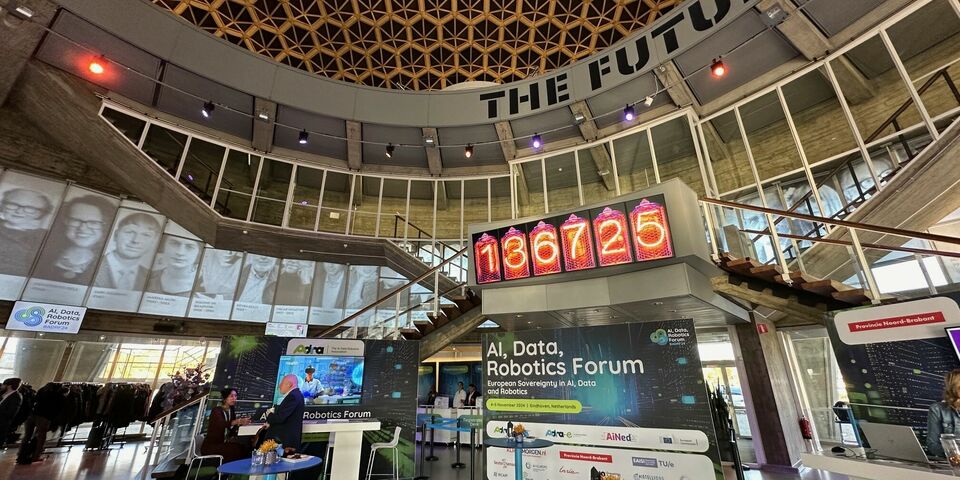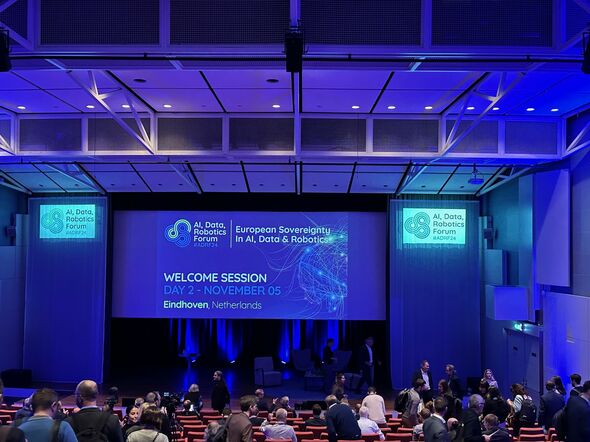TU/e calls for European sovereignty at ADR Forum
This morning, Robert-Jan Smits stressed the importance of European sovereignty at the ADR Forum in the Evoluon. European economic independence motivated by geopolitical developments is a broad theme at this international conference for AI, data, and robotics.
Several policymakers, politicians, companies, and research institutes were present at the conference to talk about European independence in the area of technology, among other things. Robert-Jan Smits gave the opening speech on behalf of TU/e this morning, in which he discussed the university's contribution to the region. “We are strong in the focus areas of this conference, like AI and robotics, but also in semicon. And we also see this reflected in the employment figures in the region: 80 percent of the new employees in Brainport come from TU/e.”
But in order to keep playing this important research and development role, Smits stresses, more funding has to come our way from the EU. He presents a slide saying Celonis. “Who knows this company?” he asks the room. A few hands are raised. “This is a ‘unicorn’ in the area of process mining. But the money for this didn’t come from the EU but from the United Kingdom and from the United States. And that’s a problem. We have to try harder if we want to keep our frontrunner position in the future.” Former TU/e professor Wil van der Aalst now works for Celonis as Chief Scientist.
Draghi
Smits refers to a report by Mario Draghi, former president of the European Central Bank, in which he says that in order for Europe to stay competitive on a global scale in the future, huge investments in science and innovation are the solution.
The president of TU/e currently sees the consequences of the lack of European investments: “In the US, there are 9,000 more unicorns than in the EU. And 30 percent of the unicorns here ended up leaving to the US.”
Dresden instead of Taiwan
Maurice Geraets, executive director of NXP, took over from Smits with a presentation that had a similar message. He gave the example of an important industry for Europe: automotive. “We’re going to build a factory in Dresden. It’s important we become less dependent on Taiwan, where most of the chips for the automotive industry are currently being produced.”
The NXP director looks back at 2009, when there was a financial crisis. “We almost went bankrupt back then, but we turned things around by focusing on our unique strengths. That’s what the EU needs to do as well.” Geraets doesn’t shy away from giving a concrete example. “We could, for example, focus on low power computing/edge computing. But we shouldn’t try to compete on data centers. That wouldn’t be very smart.”



Discussion